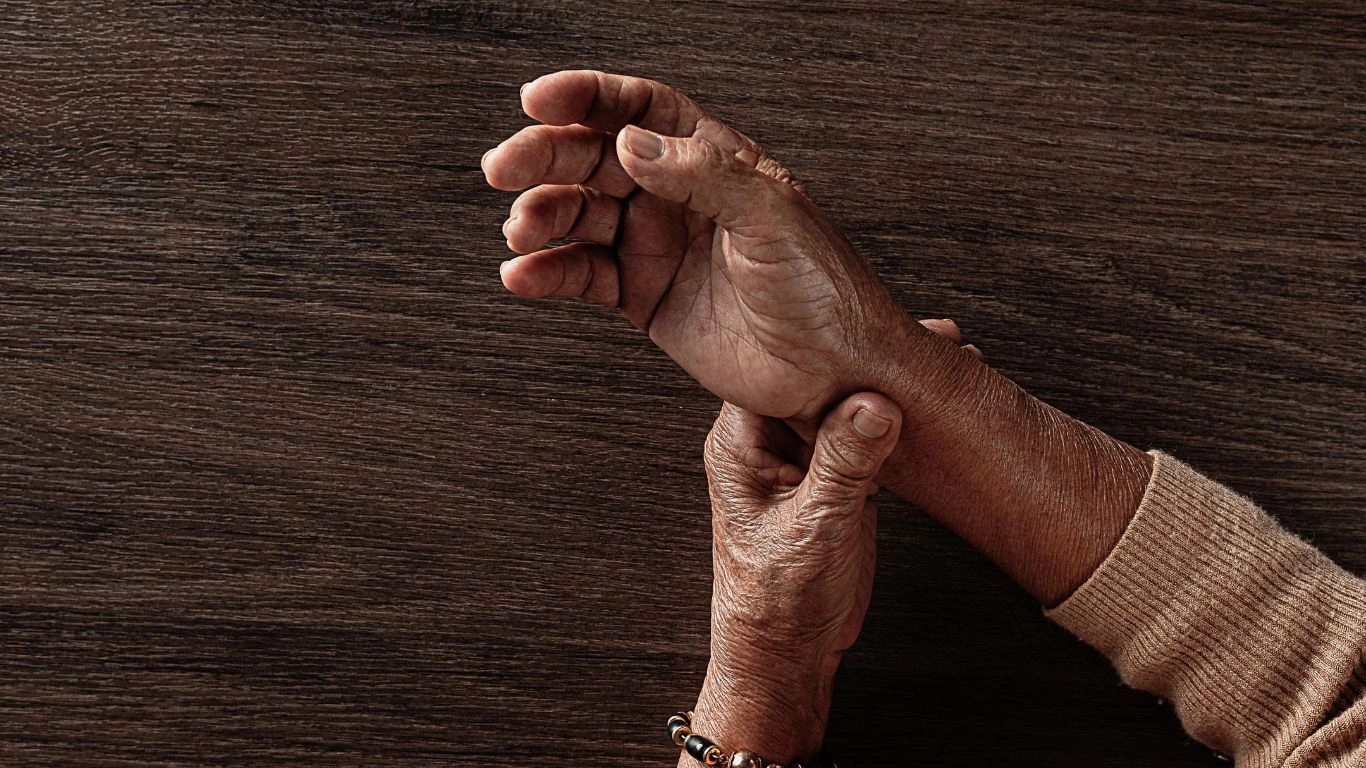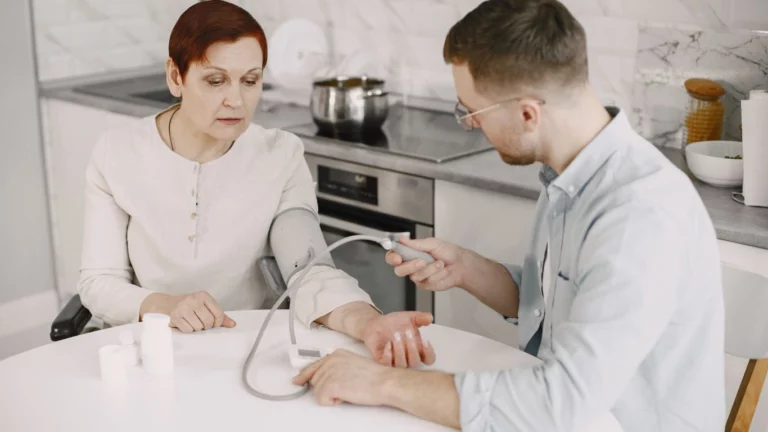Can Rheumatoid Arthritis Cause Sleep Problems? Discover What Helps
Let’s get real—can rheumatoid arthritis cause sleep problems? Absolutely. And if you’re nodding along while massaging your shoulder or rubbing your aching knees at 3 a.m., you already know the answer deep down. As a rheumatology nurse practitioner, I’ve had countless conversations with patients who feel like they’re in a never-ending tug-of-war between managing pain and getting a decent night’s rest. It’s one of those frustrating loops: the worse the pain, the harder it is to sleep, and the less sleep you get, the worse the pain feels. Vicious cycle, right?
How Rheumatoid Arthritis and Sleep Issues Are Connected

One of the most overlooked aspects of living with RA is just how disruptive it can be at night. We often think of rheumatoid arthritis in terms of joint pain, stiffness, and fatigue—but poor sleep quality deserves a front-row seat in that list too. It’s not just an annoying side effect; it’s a core issue that can seriously impact your ability to function, heal, and feel emotionally balanced.
Honestly, I’ve had patients who came in more worried about their insomnia than their swollen fingers. That’s saying something.
Inflammation Doesn’t Sleep—So Neither Do You
RA is, at its core, an autoimmune inflammatory disease. That inflammation doesn’t clock out when the sun goes down. Instead, many people experience increased discomfort and stiffness during the night or early morning hours. It’s like your immune system decides to throw a party while you’re trying to sleep—and trust me, it’s not the fun kind with snacks and music.
- Increased cytokine activity during sleep can trigger flare-ups
- Joint swelling and stiffness can worsen when you’re inactive for long periods (like while sleeping)
- Chronic pain leads to hypervigilance, which can make it harder to enter deep sleep
And when you do finally drift off? You’re probably waking up multiple times throughout the night—whether from pain, discomfort, or needing to shift positions to ease the pressure on your joints. That fractured sleep can seriously mess with your overall health.
Personal Insight: What I Hear from Patients All the Time
From my own clinical experience, the phrase I hear more than almost anything else is, “I just can’t sleep anymore.” It’s heartbreaking. These are people who aren’t lazy or overly sensitive—they’re warriors, pushing through pain daily. But night after night of tossing and turning wears on anyone. Some even dread bedtime, knowing full well they’ll be up again by 2 a.m. with a throbbing wrist or burning knees.
One of my patients—a retired teacher in her early 60s—once told me, “I’d give anything to sleep through just one night without waking up from the pain in my hips.” That stuck with me. We often think of sleep as passive, but in RA patients, getting quality sleep is an active battle.
Other Factors That Disrupt Sleep in Rheumatoid Arthritis

It’s not just the joint pain that keeps RA patients from getting the rest they need. There are several layered reasons behind those long, restless nights. It’s rarely just one issue—it’s a perfect storm of many factors.
- Medications: Corticosteroids like prednisone can cause insomnia, especially if taken later in the day.
- Depression and Anxiety: These are common among those with chronic illnesses and can further disturb sleep patterns.
- Restless Legs Syndrome: More common in people with RA than in the general population. That creepy-crawly, itchy leg feeling is enough to drive anyone mad at bedtime.
- Sleep Apnea: People with RA may also have a higher risk of sleep apnea, especially if inflammation affects the upper airway or if weight gain is part of the equation.
As if managing a chronic autoimmune condition isn’t enough, now you’re also juggling insomnia, medication side effects, and potential comorbidities. No wonder mornings can feel like you’ve been hit by a truck.
Hormones at Play: The Melatonin and Cortisol Connection
Sleep and inflammation are deeply connected by hormones. Cortisol—our natural anti-inflammatory hormone—follows a circadian rhythm, rising in the morning and falling at night. But in RA, this rhythm can be totally out of whack. Meanwhile, melatonin, which helps you fall asleep, may influence inflammatory pathways too. So your hormonal symphony is more like a badly tuned orchestra.
When your internal clock is misaligned, your body struggles to reduce inflammation efficiently overnight. It’s like trying to clean up a party while people are still dancing on the tables. Not gonna work.
The Real-Life Impact: Sleep Loss Makes RA Worse

Let me tell you—sleep is not a luxury when you have RA. It’s a critical part of how your body copes with the disease. Sleep deprivation doesn’t just make you cranky (though yes, it totally does that too). It ramps up inflammation, lowers your pain threshold, worsens brain fog, and makes it nearly impossible to stay physically active—one of the most important tools we have in managing RA symptoms.
In fact, I’ve seen cases where just improving sleep hygiene helped reduce flare frequency. That’s how powerful rest is. Unfortunately, sleep disturbances are still under-discussed in most rheumatology appointments, even though they should be part of routine care. If we’re not addressing it, we’re missing a huge piece of the puzzle.
Let’s Talk Solutions (Next Up)
So now that we’ve explored the “why,” in the next section, we’ll break down some practical steps you can take to improve your sleep—even with RA tagging along like the world’s worst roommate. From treatment tweaks to cozy bedtime rituals, there are ways to fight back.
Practical Ways to Improve Sleep with Rheumatoid Arthritis

Okay, so now that we’ve established that rheumatoid arthritis absolutely can cause sleep problems, let’s get into something a little more hopeful—what you can actually do about it. I always tell my patients that we might not be able to control RA 100%, but we can absolutely control how we respond to it.
Sleep hygiene isn’t just a buzzword—it’s a legit strategy, and it’s one that I’ve seen make a meaningful difference when it comes to nighttime flare-ups and restlessness. But let me be real: improving sleep with RA isn’t always as simple as buying a new pillow. It takes layered strategies that hit physical, emotional, and lifestyle angles.
Start with a Bedtime Ritual That Respects Your Joints
Creating a solid nighttime routine is huge. I know, routines sound boring—but your body craves them. Especially when your immune system is acting like a toddler mid-tantrum. Here’s what I often recommend to patients:
- Warm baths or showers: The heat can reduce joint stiffness and ease muscle tension, signaling your body to wind down.
- Gentle nighttime stretches: Think of it like telling your joints, “We’re done for the day, you can relax now.”
- Weighted blanket (if tolerated): Provides a feeling of security, which can help with anxiety-driven insomnia.
- Anti-inflammatory herbal teas: Chamomile, turmeric, ginger—these are cozy and may help your body calm inflammation internally.
Also, one of my patients swears by putting her heating pad under the covers 10 minutes before bed. That cozy warmth? It works wonders on cold, achy joints.
Reconsider the Timing of Your Medications
This one is super important. Some meds used in RA—like corticosteroids—are infamous for messing with sleep, especially if taken late in the day. If you’re popping prednisone at dinner, don’t be surprised when you’re staring at the ceiling until 2 a.m.
I’ve worked with patients to tweak med schedules (always in coordination with their prescribing doctor), and the difference can be night and day—literally. Sometimes just shifting the dose to the morning helps reduce insomnia without messing up the benefits.
Targeting Pain and Inflammation Proactively

Here’s a personal rule I live by in clinic: If nighttime pain is your biggest barrier to sleep, then let’s stop treating it like a daytime problem. Proactive pain management strategies can help set the stage for restful nights.
Pre-Bed Pain Reduction Strategies That Work
- Topical NSAIDs: Creams and gels with diclofenac or menthol can provide joint-specific relief without systemic side effects.
- Compression gloves: Many patients with hand involvement find these helpful for reducing swelling overnight.
- Bedtime dose of a long-acting pain reliever: Talk to your rheumatologist about this—it can make a big difference.
- Gentle self-massage: Focused massage with warm oils (like arnica or magnesium oil) can help reduce muscle tightness around inflamed joints.
One of my favorite tricks is encouraging patients to keep a pair of microwavable heat packs on their nightstand. If they wake up with joint pain, it’s a low-effort way to ease things without having to fully get up and ruin the chance of falling back asleep.
Sleep Positioning for Joint Comfort
We don’t talk enough about how body positioning affects joint stress. The way you sleep can either support your healing or aggravate sensitive joints.
- Pillow between the knees: For side sleepers, this keeps the hips aligned and reduces pressure on the lower back.
- Arm support: RA in the shoulders? Hugging a body pillow or placing a cushion under your arm can reduce strain.
- Neck and spine alignment: Don’t skimp on a good quality pillow that keeps your head in neutral alignment. That’s a small change that pays off big time.
I’ve had patients tell me they assumed pain at night was just inevitable—until we adjusted their sleep posture. Something as simple as a $20 wedge pillow can totally change how you feel in the morning.
Mental Health and Sleep: The Overlooked Piece of the Puzzle

Let’s be honest—RA doesn’t just hit the joints. It hits the mind and heart too. When pain is chronic, it’s easy to spiral into stress, sadness, even depression. And that mental chatter at night? It’s relentless.
Many of my patients struggle with what I call “RA brain”—that mix of anxiety, mental fatigue, and brain fog that makes it hard to relax. And when you’re lying in bed, your mind starts overthinking everything: “Did I forget my meds?” “Will I be able to move tomorrow?” “Why do my knees feel like they’re full of gravel?”
Cognitive Tricks and Supportive Tools
- Journaling before bed: Get those spiraling thoughts out of your head and onto paper.
- Guided meditation or sleep stories: Apps like Calm or Insight Timer offer RA-friendly body scan meditations.
- Cognitive Behavioral Therapy for Insomnia (CBT-I): This is gold for anyone dealing with chronic illness and sleep issues. Ask your provider about referrals or virtual options.
When I mention CBT-I to patients, they often go, “Wait, what?” But once they try it, most say it’s one of the best things they’ve done for their sleep.
Lean Into Community and Support
I know it might sound a little woo-woo, but having a support system—whether it’s a Facebook group, a friend who gets it, or even just your rheumatology nurse (hi!)—makes a difference. Knowing you’re not alone in the nightly battle for sleep brings a level of comfort that’s hard to put into words.
RA is a full-time job. And sleep, well… it’s not just a break. It’s your recovery tool. If you’re constantly robbed of that healing time, everything else becomes harder. That’s why this conversation matters so much—not just as your practitioner, but as someone who genuinely cares about the quality of your everyday life.
Long-Term Strategies to Break the RA–Sleep Disruption Cycle

Now that we’ve talked through the immediate and practical things you can do to sleep better with rheumatoid arthritis, let’s zoom out for a minute. What about the bigger picture? Because let’s be honest—this is not a “one bad night” situation. It’s about breaking a chronic cycle that can slowly drain the joy out of your days and nights if left unchecked.
In my years working with patients, I’ve noticed that those who really find relief aren’t just treating pain—they’re treating the whole system. RA is a systemic disease, after all, so why would sleep treatment be any different?
Focus on Disease Control First, Always
I can’t stress this enough: when your RA is under better control, sleep naturally improves. It may not be perfect, but the nights tend to get less chaotic. This is why I always push patients to be honest about flares, med side effects, or new symptoms. If your inflammation is constantly simmering under the surface, it’s going to show up at bedtime.
- Keep up with rheumatology visits, even when things feel “meh” but not terrible.
- Discuss any persistent stiffness or fatigue—even if it seems minor.
- Make sure your labs (like CRP or ESR) are being monitored regularly to track inflammation trends.
RA treatment is not “set it and forget it.” Your body’s needs change over time, and so should your care plan. Sometimes that means tweaking meds, exploring newer biologics, or layering in physical therapy or dietary support.
The Role of Anti-Inflammatory Nutrition
Let’s talk food real quick—because yes, what’s on your plate can absolutely affect how you sleep with RA. I’ve had patients who were skeptical at first, then saw dramatic changes after switching up their diet. We’re not talking full-blown kale evangelism here, but real, manageable adjustments that reduce inflammation and support better sleep.
Foods to consider working into your meals:
- Omega-3 rich fish: Like salmon, sardines, and mackerel. Anti-inflammatory and heart-healthy.
- Dark leafy greens: Packed with magnesium and antioxidants, which support muscle relaxation and immune balance.
- Tart cherry juice: Natural source of melatonin—bonus if it helps reduce muscle soreness too.
- Turmeric and ginger: Spices with strong anti-inflammatory properties that may help reduce flare intensity.
And yeah, I get it—sometimes you’re just too tired to cook. That’s okay. Even swapping out one or two processed meals a week for whole, anti-inflammatory foods can be a powerful step.
Supplements and Natural Aids: What Might Help (and What’s Hype)

I get asked about supplements for sleep all the time—especially by patients who are already on multiple prescriptions and want to avoid adding yet another pill to the mix. And hey, I totally get that.
Here are some that have shown real promise for folks dealing with RA-related sleep problems (but please always talk to your provider first):
- Magnesium glycinate: Supports muscle relaxation and may help with anxiety-driven insomnia.
- Melatonin: Can be useful, especially if your sleep cycle is way out of sync. Start low (0.5–1mg) and build only if needed.
- CBD (non-THC): Some of my patients find relief with high-quality CBD oils or capsules for joint discomfort and restlessness, though research is still evolving.
- Valerian root or passionflower: Natural herbal options that support sleep without major next-day grogginess.
One caution: be wary of those “miracle” sleep blends with ten unregulated ingredients. More isn’t always better. And when in doubt, bring the label to your next appointment. I’ve read through a lot of them with patients, and you’d be surprised how often we catch something problematic.
Therapeutic Tools and Techniques Worth Exploring
If you’re still struggling despite making all the right changes, it may be time to bring in some reinforcements. And by that, I mean evidence-based therapies that go beyond just pills and pillows:
- Occupational therapy: Especially if joint pain is impacting your nighttime movements or ability to get comfortable.
- Acupuncture: Some studies suggest it may help with both pain and sleep quality in autoimmune conditions.
- Biofeedback and relaxation training: Teaches your body how to calm down from the inside out—literally rewiring stress responses.
In my practice, the patients who approach RA management like a wellness puzzle—bringing together tools from different corners—tend to do best in the long run. It’s not about perfection, it’s about experimenting, adjusting, and finding your rhythm.
Final Thoughts: You Deserve Rest, Not Just Relief
If you’ve made it this far, first off—thank you. It tells me you’re not just dealing with rheumatoid arthritis, you’re actively trying to live well with it. That matters. And yes, the answer to can rheumatoid arthritis cause sleep problems? is a loud, resounding yes—but the more empowering truth is this: you’re not powerless in that fight.
I’ve seen patients go from sleeping three broken hours a night to waking up refreshed for the first time in years. Not overnight, not without setbacks—but with consistency and the right support, it is 100% possible.
So don’t settle for pain-filled nights or dismiss your sleep issues as “just part of RA.” Advocate for yourself. Bring it up at appointments. Keep experimenting. And know that every small improvement matters—because your rest is not optional. It’s part of your healing.
References
- National Institutes of Health
- Health.com
- Centers for Disease Control and Prevention
- Arthritis Foundation
Disclaimer
This article is for informational purposes only and is not a substitute for professional medical advice, diagnosis, or treatment. Always seek the guidance of your physician or a qualified health provider with any questions you may have regarding your condition. The opinions shared here reflect personal clinical experience and should not replace medical guidance tailored to your individual case.

Tarra Nugroho is a dedicated Nurse Practitioner with a strong foundation in family and preventive care. She brings both compassion and clinical expertise to her practice, focusing on patient-centered care and health education. As a contributor to Healthusias.com, Tarra translates medical knowledge into clear, empowering articles on topics like women’s health, chronic disease management, and lifestyle medicine. Her mission is simple: help people feel seen, heard, and informed—both in the clinic and through the content she creates. When she’s not caring for patients, Tarra enjoys weekend hikes, plant-based cooking, and curling up with a good health podcast.







